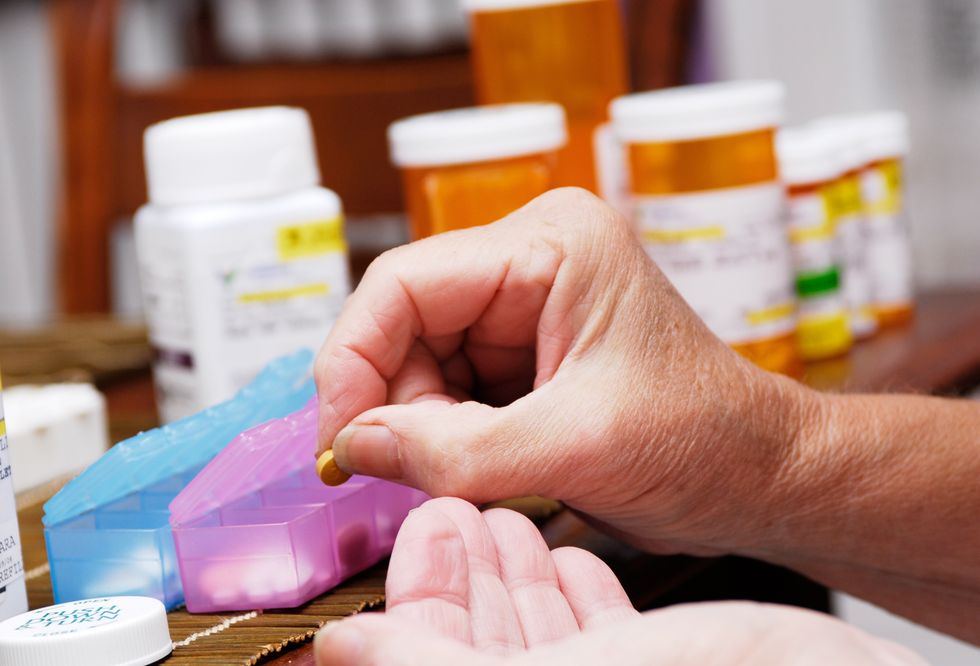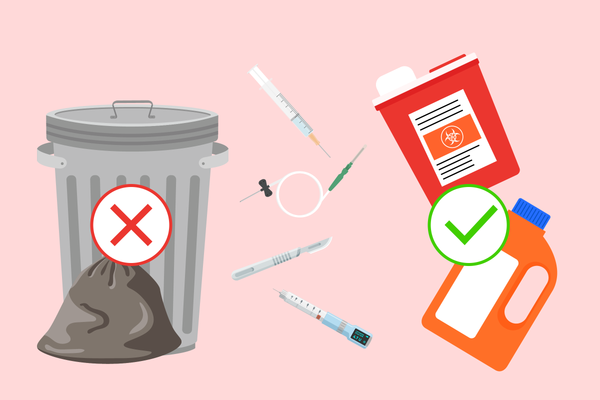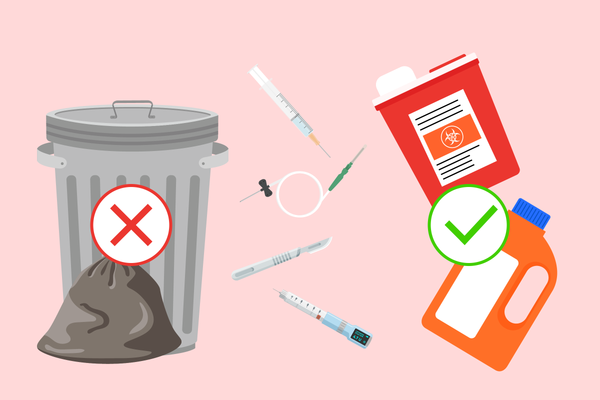I am asked almost daily what to do about a parent, grandparent or loved one who is taking 10 or more medications a day. Believe it or not, taking this many medications is common among older adults.
And I have people ask not just about a parent or loved one, but about themselves, too. I am surprised how many friends have medication concerns but have not spoken up before I started writing this blog.
There are so many things you can do to help simplify medications, but you can't do it all on your own. You need to engage your primary physician to help. That means you need to schedule a medication checkup.
Some experts refer to this as a prescription checkup. I prefer to use the term medication checkup because every vitamin, supplement and over-the-counter medication you take counts as part of the checkup.
Before you make an appointment, there is a lot you should do behind the scenes to start the process and make your health care professional's job—and your job—much easier. If you prepare in advance, you will achieve great peace of mind and be thankful you did.
1. Who is the best health care professional to see for a medication checkup?
Although patients are often prescribed medications by more than one health care professional, it's usually a good idea to have your primary care doctor take the lead—someone who sees the entire picture of your health goals and circumstances and knows about your overall health and the treatments you receive.
If you, your parents or loved ones are treated primarily by a specialist (such as a hematologist, cardiologist or oncologist), then the specialist would be in the best position to do a medication checkup. You know best who sees you the most and is managing most of your conditions.
Often when people are undergoing treatment for cancer, their oncologist becomes their primary physician. The primary care physician will often take a back seat until your treatment is over.
If you are wondering whether health care professionals will schedule this kind of visit and whether insurance will pay for it, just think about this for a minute. Doctors schedule appointments and get reimbursed for treating all sorts of concerns—some minor and some major. What could be more important to your health and safety than reviewing your medications to see that they are all safe, effective and treating something that is important to you?
When you schedule the visit, make sure the physician's office knows that you are coming in for a complete medication or prescription checkup and may need a little extra time. Office visits for repeat visits are often allotted only 10 to 15 minutes maximum. You may need more time than this, and you want the office to be prepared.
2. Have I put together a complete list of every medication, vitamin and supplement that I (or my loved one) take?
Start by gathering all medications, vitamins and supplements. Then write down the complete list of prescription and over-the-counter medications, vitamins and supplements on a piece of paper or in an electronic device. The list should include each medication or supplement name; why it's being taken; name of the health care professional who prescribed it; dosage; the time(s) to be taken each day; and a description of the pill, liquid, spray, cream, ointment, inhaler or injectable. Also, include the start date if you know it and any stop date. I have prepared a helpful medication form for you to download and use to make things easy. See below:
In addition to bringing this list, be ready to bring all the containers of medications, vitamins and supplements to the appointment as well. I like using zip-locked bags rather than a brown bag because you can see what is inside. In a separate zip-locked bag, include all medications you or your loved one may not be taking at the moment but were prescribed and those that they take only on occasion.
Your written complete and up-to-date list of medication is the most valuable reference, but health care professionals like to review the direct evidence by seeing the medication containers and directions and ingredients as well. The medication containers will usually contain the dose and directions, refill date, prescribing physician and any special precautions.
3. Are all medications being taken as prescribed? Are doses missed? Is the prescription not taken at all? Are prescriptions ever "shared" among friends or family members?
Don't just assume a loved one is taking all their medications. It wasn't until my mother was hospitalized a few times that I realized she wasn't taking the diuretic she needed to control her heart failure.
You should know all you can about adherence. Is your loved one getting all the medications prescribed at the right dose and time? Are all the medications refilled regularly? If you are worried a loved one may not be taking a particular medicine, a pharmacist may know more about their adherence and can help.
If a loved one is managing their medications on their own, talk to them in detail about their medication to learn how they take them, how they make them feel and if they are taking them as prescribed. Ask open-ended questions like: Tell me about this medication. What is it for? How does it make you feel? What do you do if you miss a dose?
It's better not to simply ask what they take or don't take. Often parents or loved ones will tell you that they are taking everything just as prescribed. They fear if you think they can't manage something as important as medication that you will not let them continue living independently or you will think something is seriously wrong.
It is estimated that people fail to take their medications for chronic conditions up to 70 percent of the time. No surprise that the more medications a person is prescribed, the less likely they are to take them all.
For those on multiple medications, it is not unusual for the most important ones to be missed or not taken at all. If a loved one is not taking important medications or not taking them according to instructions, you need to let their health care professional know.
I heard a presentation by a University of Pennsylvania research professor recently noting that even after a patent has had a serious heart attack, patients fail to take their lifesaving medications up to 60 percent of the time.
Often people fail to take some or all the medications because they are having symptoms that they believe could be caused by medication or they worry about the cost of the medicine or the potential side effects.
And finally, ask about medications you find that are prescribed for others but you suspect your loved one may be taking those too.
4. What are your health priorities (or those of your loved ones)? What goals and values are most important at this stage of life? What matters most right now?
A long-distance caregiver whose mother had advanced dementia and 24/7 caregivers contacted me because she was finding it difficult to safely manage her mother's medications. I suggested she look at whether the number of medications could be reduced.
By taking so many medications, there was a real risk of her mother not taking the one medication that really mattered or taking the wrong medication. The benefit of many of her medications was likely minimal. Simplifying could mean taking only the one essential medication.
In advanced dementia, medications for long-term prevention, such as statins, may no longer make sense. Focus on seeing that a loved one is taking the medications that treat symptoms that are troubling them right now.
The nursing homes where I was the chief medical officer a few years ago posted a picture of each patient outside their room with personal details including what they enjoyed doing and what was most important to them. This was a great reminder to treating practitioners what the goals of care should be. If a medication interfered with that goal, then it was important to consider stopping it.
Insider tip: I believe that every doctor should post a picture of each patient with important personal details including what matters most to the patient on the outside of the medical record (or on the prominent first screen of the electronic medical record). This would be a great reminder to the physician of what matters most to their patients.
For example, perhaps having the ability to live at home without undue risk or medication side effects is far more important than preventing a disease far in the future.
Record "what matters" on a separate sheet of paper titled "What Matters to Me" and keep this document with your or your loved one's medical records at home. Share this document with all health care professionals so they can include this important information in their records.
5. Have I prepared an agenda and arranged for a buddy to accompany me (or my loved one) to the medication checkup?
It is always smart to take someone with you for an important medical appointment like a medication checkup, and even more important with an older person who may have multiple conditions and medications and possibly a faulty memory. If you can't accompany a loved one, find a neighbor or friend who can go and participate in the visit. Learn more about taking a health buddy to a medical appointment.
If that isn't possible, try to Skype, FaceTime or Zoom the visit so you can ask questions and hear what the health care professional says. Even a telephone call during the visit to listen in and contribute would be better than having a loved one go it alone.
Studies have shown that patients with chronic conditions often immediately forget up to half of what a health care professional says. Having someone else at the visit, even by video or phone, can help with recall.
You can use the office visit agenda I developed to set an agenda and record findings from the visit. Review the agenda with your friend/caregiver who is going in place of you If necessary.
Sample questions to jot down on your agenda form include: What is a particular medication for? How do you know the medication is helping? Could it be causing any of the symptoms or complaints of your loved one? Why or why not? How can you lower the dose or begin to taper and stop any medications that are causing side effects, simply not safe, or not treating something that is important? Which medication should be tapered or stopped first? Which ones would be dangerous or risky to stop? What are safer alternatives?
There are many additional questions you may want to ask during the medication checkup. Speak up. This is your time to get your questions answered. Knowing you have asked even the most difficult questions will give you peace of mind.
Marie Savard, MD, is a trusted voice on women's health, wellness and patient empowerment. She currently writes a blog called Ask Dr. Marie, where this column first appeared. Her blog focuses on the challenges of medication overload in older adults and what caregivers can do to help. Dr. Savard is a former ABC News Medical Contributor and author of four books including her most recent, Ask Dr Marie: What Women Must Know about Hormones, Libido, and the Medical Problems No One Talks About. She lives in Philadelphia with her physician husband and has three grown sons.







